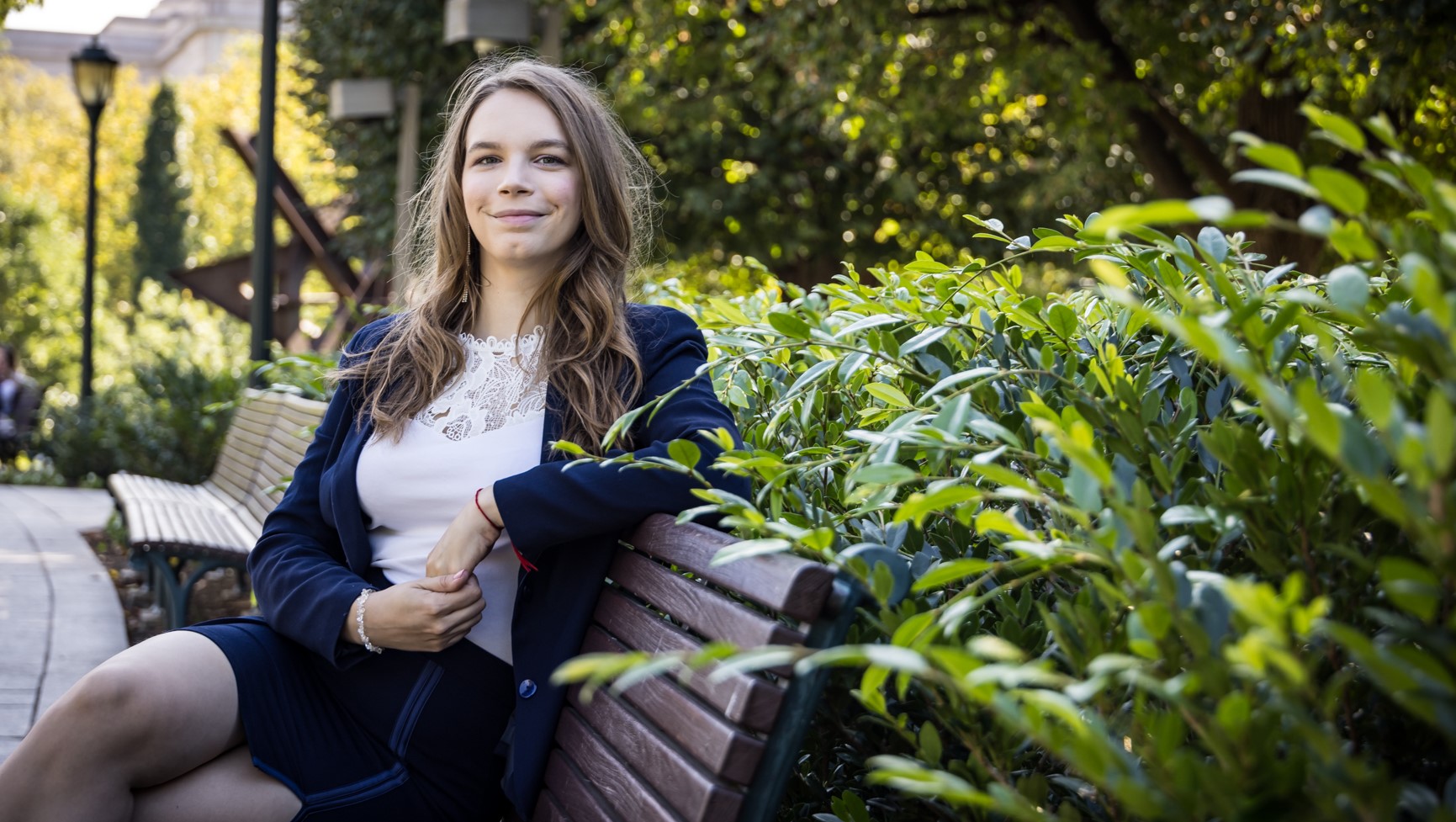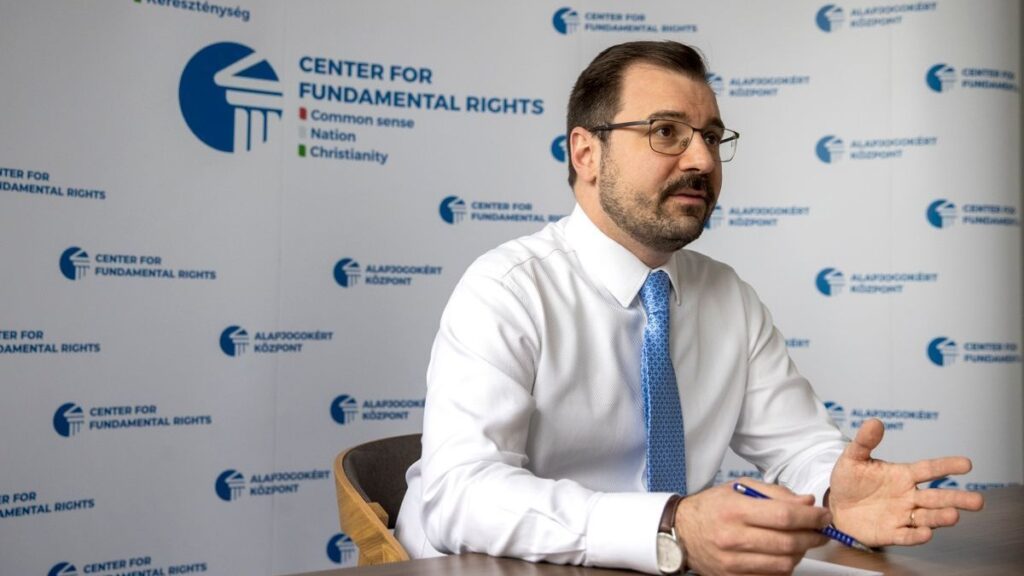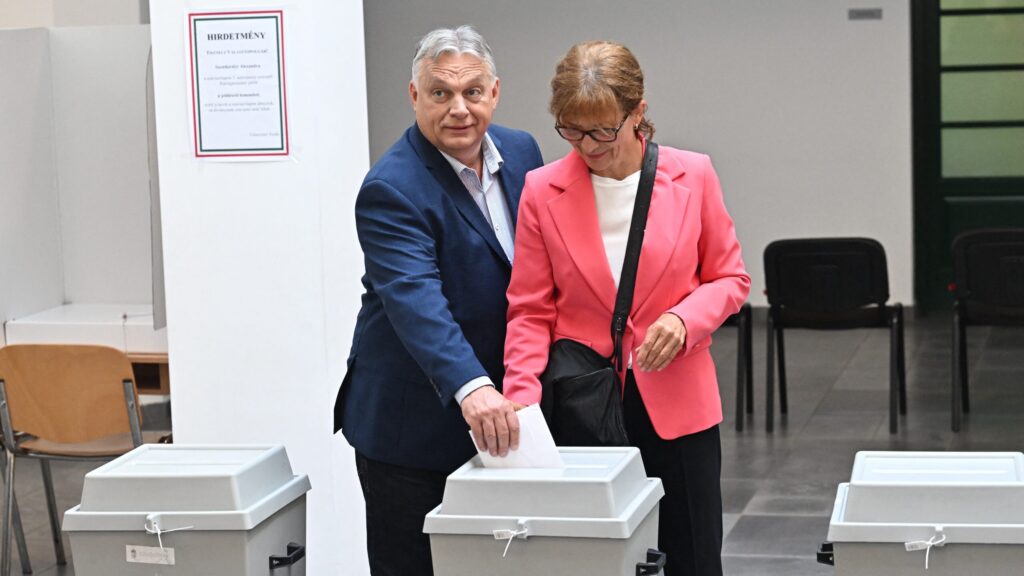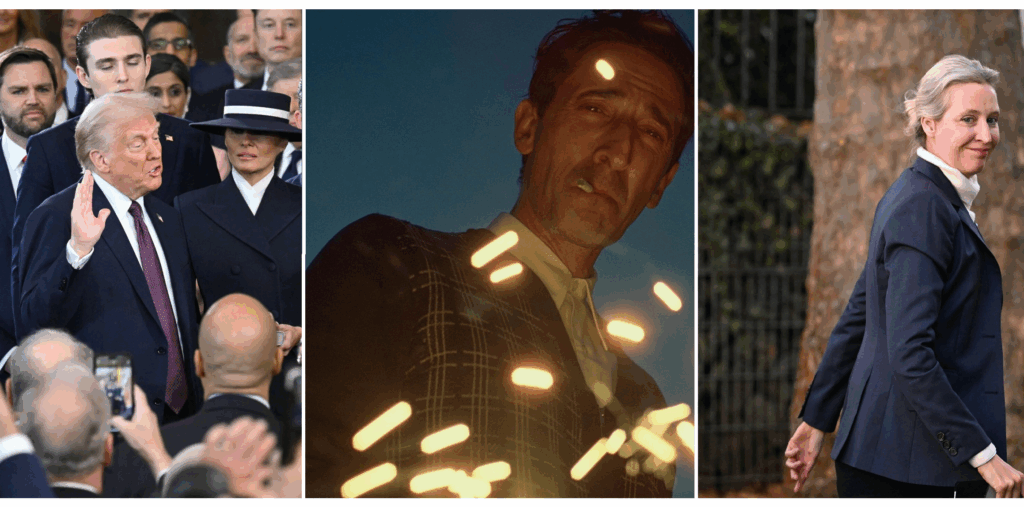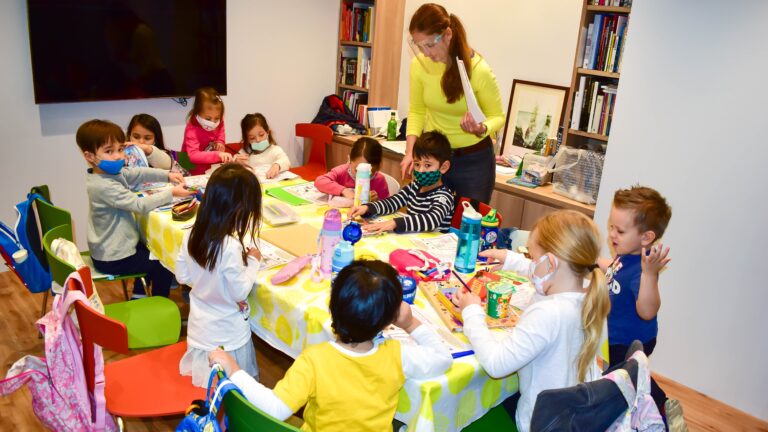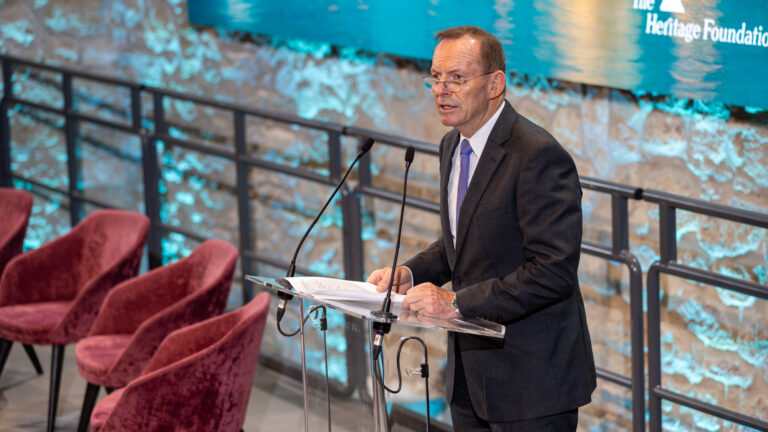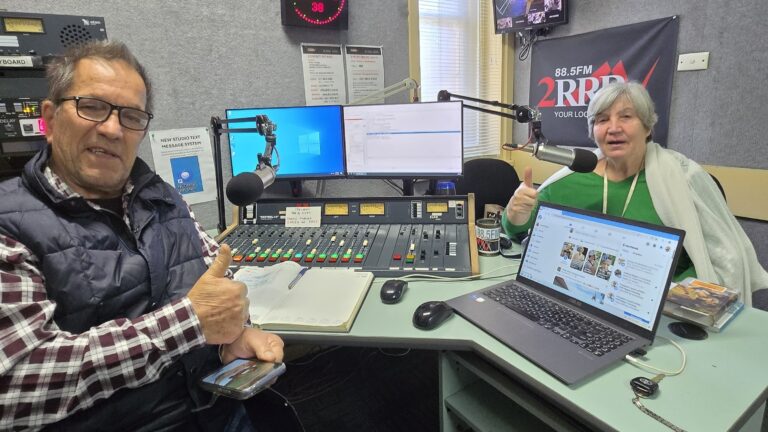At the Hungarian American Coalition’s (HAC) Santa Claus Dinner, a young lady was sitting next to me whose enthusiasm and resilience impressed me. When I found out that she was a Hungary Foundation fellow, I promised her that I’d interview her, because I wanted to write about this scholarship opportunity for a long time. I had already heard when we met for the first time that she was doing PhD-research in an exciting field (artificial intelligence and child protection), but I found out only during this interview how exciting her professional life is.
***
What should we know about your life before this fellowship was awarded to you?
I was born in Miskolc and I’m the first in the family who pursued higher education. My parents were very supportive, even though they didn’t have such a career path. Fortunately, after high school, I got into a five-year, free-of-charge public university where I could study law. During my university years, I worked continuously as a trainee; for example, at the Miskolc Regional Court, at the law clinic of my university, I was a faculty assistant at two law school departments, and in 2019, I also got into the Parliament on a one-year scholarship. Unfortunately, the COVID-19 pandemic frustrated that program at its half-point, at a time when we were about to start visiting institutions… I still managed to get to the Constitutional Court and a few other places. I was always looking for opportunities and never missed them when they came my way. Even then, I was trying to publish my legal commentary pieces, and I wrote five essays, too. I know I’m not completely normal…
That’s not the word I had in mind, but the fact is: you are extraordinary…
After the stint at the Parliament, I came across an advertisement where the Aurum Foundation was looking for mentees. According to their program, which started in early 2021, those who get in would be matched with mentors from Budapest who have already made some progress in their legal careers. I didn’t know anything about this program, but as I had no professional contacts in Budapest at all, I was happy to apply. At the oral interview, I was asked what I was interested in. Before that, I was inspired to write a thesis on the privacy risks of DNA testing, so I told them that I had an interest in constitutional law and, within that domain, data protection. Many say that the algorithm rolled this opportunity in front of me, but I think it was God… In any case, that’s where I met Endre Győző Szabó, who used to be the deputy president of The National Authority for Data Protection and Freedom of Information, that is, the Hungarian Data Protection Office. Because of the COVID pandemic, the mentors were not able to deal with us too much, but Endre was extremely conscientious and very supportive in helping me to progress professionally. For example, he helped me to do an internship at the Data Protection Office and helped me decide between job offers when I received several at the end of my university studies.
Did you meet other professionals at the Aurum Foundation?
Yes, for example, Norbert Tribl, who was working at the Constitutional Court at the time and who, knowing that I had a degree in English legal translation, first asked me to translate various decisions for the Constitutional Court. Then I started working there towards the end of my studies, and that’s where I met, for example, Márton Sulyok. I was the only one from the countryside—everybody else came from ELTE Budapest to this project team. I was also invited to be part of the team launching a blog called Constitutional Discourse.
Then I was asked if I’d be interested in working for Mathias Corvinus Collegium (MCC) 20 hours a week. Of course, I accepted the offer, as I did with all the other opportunities that came my way. At first, I worked only on a project basis, organizing and moderating some events. The first event I moderated went so well that afterwards I was invited to Budapest to start my PhD studies. That is how I ended up at Károli Gáspár University as the PhD student of Professor Trócsányi and Márton Sulyok. After I graduated, I started working 40 hours a week for MCC while pursuing my PhD studies and contributing to the above-mentioned blog, too. The latter was not financially supported for many years, but now it is much more established and has a much larger readership than when we started. After that, I worked for the Constitutional Court again and I was a mentor at the Bocskai István College of Károli Gáspár University of the Reformed Church in Hungary… I also worked at the Competition Authority. I’m currently on unpaid leave from there and from MCC, but I’m still writing the blog as well as pursuing my PhD studies from here.
Let’s turn to your arrival in America. Why did you apply for this scholarship?
I first heard about the Hungary Foundation when I was working at the MCC in 2023 and spent six days here in Washington, D.C., visiting institutions, including theirs. I didn’t know about this fellowship opportunity at the time, because it hadn’t been announced for years due to the COVID pandemic. However, Lilla Nóra Kiss, one of my previous teachers and later colleagues, who has previously also received this fellowship (Post-Graduate Visiting Research Fellowship) and has been living in America since, sent me the application as soon as it was announced. I didn’t think I’d make it, but I was selected. The process not only required the submission of a lot of written materials but also an online interview. It went well and soon the email arrived, which was a source of great joy and pride, that I had been selected. I’m grateful to God who has arranged this opportunity, and of course, I’m very grateful to the Hungary Foundation for helping me to come here, where I’ve already done so much, met so many interesting people, traveled a lot, attended, organized and delivered lectures—definitely a life-changing experience…
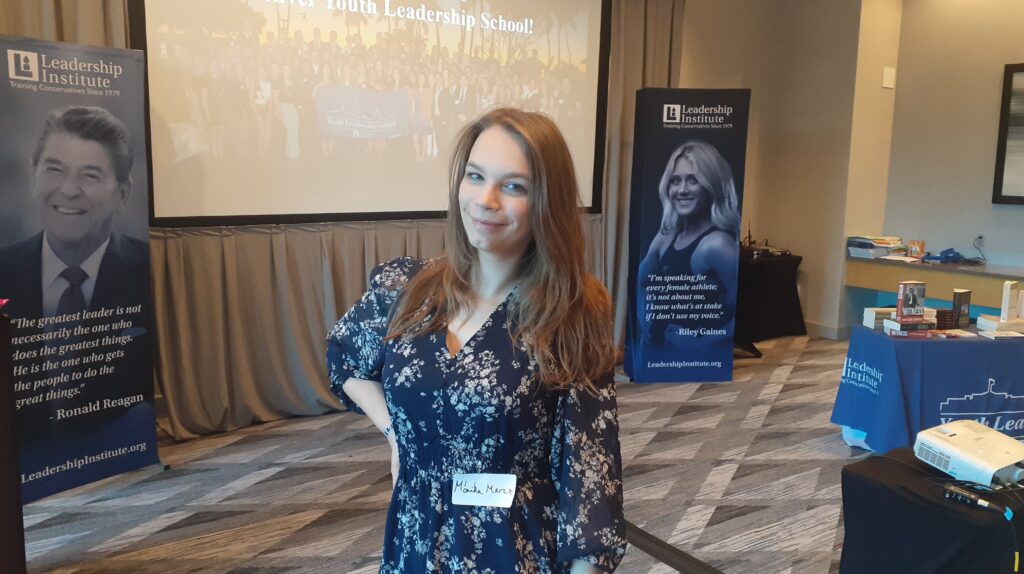
How big of an opportunity is this for you professionally?
As described, I’m currently doing my PhD, which is a four-year process in Hungary, starting in 2022. The call for this fellowship specifically sought PhD students or researchers who had completed a PhD within the past five years. I looked at other applications, but I’d not have been eligible, either because of my age or because I was doing completely different research. My research topic is artificial intelligence (AI) and child protection. I have been interested in them for a long time, first in data protection and later in AI and child protection. At the university, I did a lot of research on the former—I’m currently working with Professor Koltay’s team on a media law textbook that will be published next year, in which I am co-author of the data protection chapter—but as mentioned, I also worked at the Data Protection Office. After that, I became interested in AI itself, as it has quite a lot of overlap with data protection, for example, in terms of the datasets that artificial intelligence systems are trained on. At that time it was only rudimentary research, but I did a program called Artificial Intelligence and Law at the University of Lisbon, for example, for which I got a second degree. And the child protection aspect interests me because I think it’s incredibly important. So, I’m a constitutional lawyer; my PhD is also on constitutional law and the European Union, but I thought I could bring my theoretical and practical knowledge together, and there’s no better way for that than to research how to protect children with AI…
Protect?
Yes. We hear a lot about the dangers of AI—taking our jobs, being used by pedophiles, etc—so I think it’s necessary that someone should also look at how AI and all the other technologies we have at our disposal can be put to good use, and what the legal pitfalls and opportunities are, also on an international level. I was awarded a fellowship from the Hungary Foundation to do research on this topic, which I’m doing at the George Washington University. Since then, I’ve also been doing research at George Mason University. I’m very grateful to both institutions for the opportunity. Being part of two such prestigious universities is fantastic because I get to interact with people who know a lot more than I do about the related subtopics. At the same time, not many people have started researching the relationship between AI and child protection, as AI itself has only become part of the public consciousness a few years ago. Although it has been developed for more than 50 years, it was only ChatGPT that brought it to the mainstream in an explosive way. Now we can interact with the people who will make the laws that will set the policy—that’s why it’s very important to talk as much as possible about this issue and try to do related research. That’s what motivates me; I’d very much like us to do as much as possible to protect children in every possible way. There are many related subtopics as well; for example, AI can be used to find missing children, to moderate online content or even to modernize orphanages so that professionals can focus on the children and not on the administration.
Which subtopics are you interested in?
Because of the many different subtopics, it’s difficult for me to focus on one. I want to raise awareness generally on all of them while trying to figure out what is the most urgent, the most important, what has the most legal pitfalls, etc, and organize events—online webinars or in-person workshops—about them. At the George Washington University, for example, I’m organizing webinars for our Center. Furthermore, I just organized and moderated a workshop called ‘Family and Identity’, co-sponsored by the Hungary Foundation and Freedom and Identity in Central Europe (FICE). I also try to be present at as many conferences as possible. For example, I was in Los Angeles at the A.I. in L.A. Innovation Summit. It was a huge honor for me to speak as the only European. Also, I’m constantly trying to build relationships with professionals to find out how interested they are in this topic. I notice that although AI is obviously a hot topic, child protection is a subject that touches everyone. I’ll be going to Kentucky in March and even to Hawaii to speak at conferences: the former on protecting children in the online sphere with AI, the latter on the educational aspects of AI. I’m also trying to write as much as possible.
Everything went that smoothly? Did you have any initial difficulties?
Of course I did. We had to do everything ourselves—finding accommodation, opening a U.S. bank account, applying for a social security number, etc—which wasn’t always easy, but I managed. I arrived at midnight on 9 September; Lilla picked me up at the airport and drove me to a very nice family in Maryland—a relative of the husband of one of my colleagues back home. I stayed in their basement for two and a half weeks, which was also nice because I got to see up close how an average American family lives. The mother has helped me a lot, for example, driving me to the bank, and the three little girls were very interested when I told them about Hungary because they had not been to Europe yet. At first, it was a bit difficult to use Hungarian forints for shopping until I got my American credit card, and then to look for an apartment—Hungarians told me where apartments were cheaper, and I ended up moving to a very good place, a small apartment in a residential complex with a pool, gym and a common study room. I didn’t have to get a sponsorship from anyone, and they didn’t ask for a credit score, but I had to arrange for the connection to the utility lines. I guess other scholarship recipients have reported similar struggles; the point is, I now live in Arlington, Virginia, and I have no car; I take public transportation or walk.
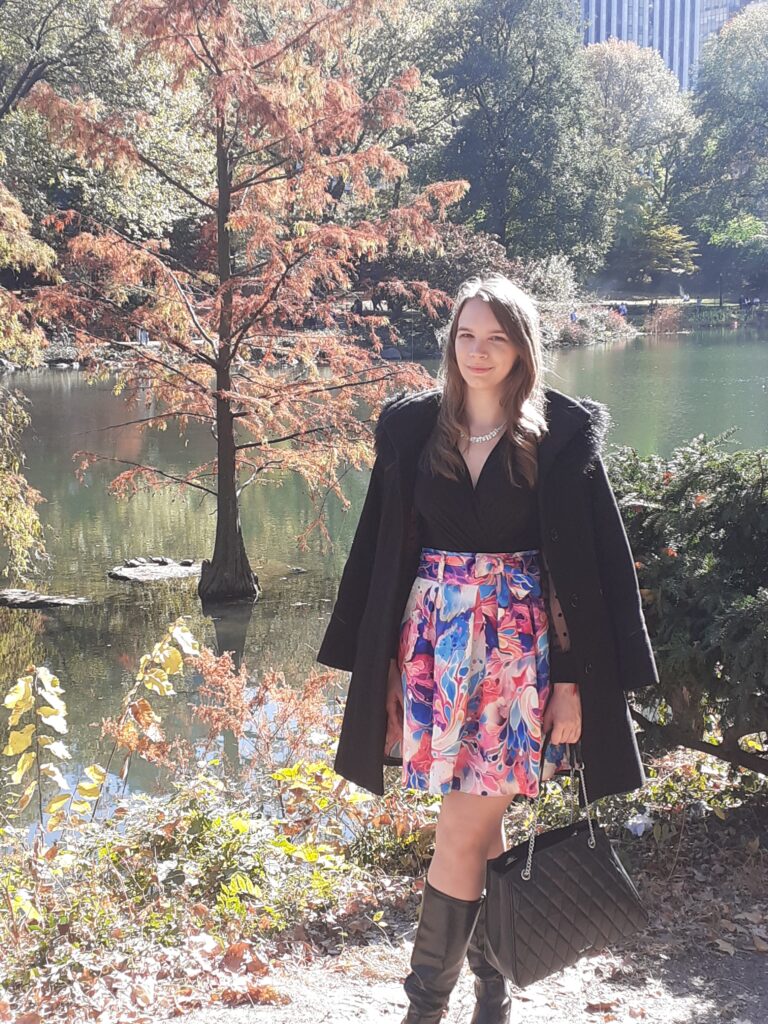
Did you start going to events right away? Did the foundation send you to these?
Yes, I did, and of course, I also went to the university from the beginning to meet my colleagues. The conferences to attend were not selected for me by the Hungary Foundation, I looked them up on the internet myself: either I looked for a specific conference on a particular topic that I could attend as a lawyer, or I typed in where I wanted to go and checked if there was a conference there that I might be interested in. AI and child protection are not usually mixed, perhaps because they are not popular research topics yet, but I could find conferences on one or the other; that’s how I found the Los Angeles one and others. I have recently started compiling my fellowship report: I’ve been to almost 100 events in less than five months. I have at least one or two events on my calendar for each day… Every day, there is an event organized by some organizations in Washington, D.C. I like to go to the events of lesser-known organizations because I can make some very good contacts there as well. You can always make professional contacts, acquaintances or friendships here that you wouldn’t have expected.
That’s how we met at the HAC annual Mikulás Dinner. But I still wonder: how do you have so much time and money?
I try to be effective in organizing my life. If there are events on the university campus, I visit them. Or, if I’m already on campus in Washington, D.C., where our office is also located, I can easily walk to many other events. It’s very cold right now, but in the fall, I really enjoy these walks because I get to see the city at the same time. I like public transport for the same reason. I pay for my travels with my scholarship, but I usually only have to buy the plane ticket, as I can arrange accommodation with friends, even in Hawaii. And if I don’t have enough money for something, I use my savings from home to supplement it. That’s why I try to live modestly, that’s why I didn’t buy a car either. I live in a small apartment, cook for myself, got my furniture from the free social media group and walk a lot…
What else has happened to you here in America?
A lot of things… For example, back in September, when I had just moved into my apartment and didn’t even have a bed, I was sleeping on an inflatable mattress, I applied to Leadership Institute’s Youth Leadership School, where I got a scholarship—they paid for my plane ticket and accommodation—to Denver, CO for a very intensive two-day course on how to become a young leader, what skills you need, etc. This was also a huge opportunity for me; I met at least 50 people. I also find these encounters and the life paths very interesting because they aren’t like the ones back home; for example, here someone can be a veteran at 20.
In November, I took a 6.5-hour bus trip to New York because it was cheaper than the train. It was a great road trip through six states. I felt like I was on a class trip because we stopped in random places and it was quite chaotic, but I really enjoyed it, seeing beautiful scenery. I went to a conference in the countryside on child protection and reported on it for the Hungary Foundation, then I shuttled down to New York City as I had meetings there, at universities, at the NATO and the UN.
Did you organize those yourself? I thought you were going to Central Park…
I ended up seeing that too. Yes, I organized them myself. I wrote to a lot of people beforehand, but most of them didn’t reply… So it’s part of my story that I’m trying a lot and it doesn’t always work out. I write to a lot of people who don’t respond; I apply to a lot of conferences that I don’t get into… But the more I try, the more I have a chance of success. In New York, I ended up meeting three people in two days: a professor who teaches economics at New York University, whom I had met at a conference earlier; a researcher on child protection; and a younger colleague from the UN who I knew from Budapest.
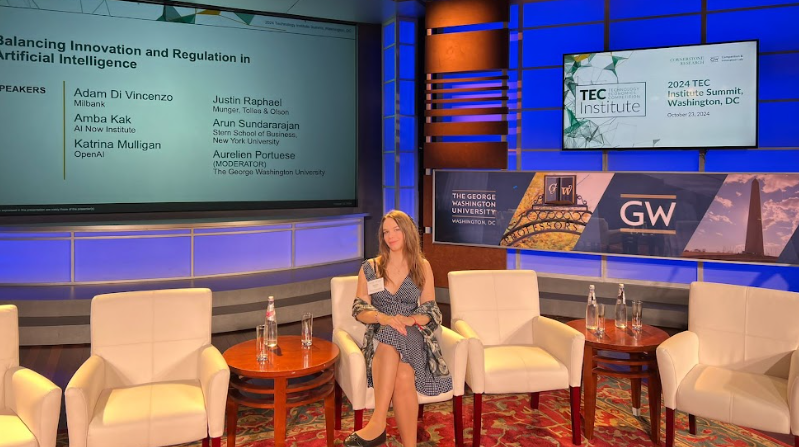
Did you also make contact with Hungarians? How many fellows are in Washington, D.C. at this point?
There are two fellows this year, Márton Sulyok and I. There is also the Andrássy Fellowship, specifically dedicated to national security issues; Máté György Vigóczki won that. So now there are the three of us. Máté doesn’t live far from me, so I’m in contact with him more often, but I also try to be in touch with Márton and other Hungarians as much as possible. For example, yesterday I was at an event at the embassy. I attended many other Hungarian events, and we also have an online group. There will be a youth meeting in Washington, D.C.; at some point, I want to go there. When I meet Hungarians who have never been to Hungary or haven’t been to Hungary for a long while because they were born and raised in America, for example, but they know some Hungarian or are just interested in Hungary, it’s really good to tell them about what it’s like back home. Americans are also very interested in Hungary; they’re very open to talking about the country.
What other plans do you have beyond the two conferences you mentioned?
I’m organizing an online or in-person workshop at the university called Ethical Issues of AI, which has become an important topic now with the presidential election: where is the right balance between trying to regulate AI ethically or letting it make profit and create innovation. The online webinar is a good format because it costs zero and reaches a lot of people; that’s why it’s so popular in universities. I’ve already organized two; one on child protection with an American and a European expert, and another one on the Brussels effect of the DMA, which I had already planned from home, and it was done as soon as I arrived here.
‘And I’d really like to publish a book with various American and Hungarian authors on my main topic: how to use AI positively for society’
I also want to write and hopefully publish as many articles, blog posts and op-eds as possible. And I’d really like to publish a book with various American and Hungarian authors on my main topic: how to use AI positively for society. This is one of my main goals. I don’t know when and how it will come to fruition, but I’m trying to talk to as many people as possible about it. If a book can’t be published, then at least some publications, and then I’d organize an event on the subject at home, within the MCC or one of the other organizations. I’m involved in a lot of them, like the Youth Atlantic Treaty Association (YATA), Central European Lawyers Institute (CELI), NextGen and more; and I still do some things for Aurum. I don’t work for a salary, I organize events for them pro bono, i.e. on a volunteer basis.
Does that mean you keep in touch with your colleagues in Hungary?
I don’t organize events at the moment, but I try to keep in touch with people back home as much as possible, which isn’t always easy because of the six-hour time difference. I try to help the different organizations as much as I can, giving tips and connecting people. And I’d like to mentor others in the future. I’ve already taught classes at MCC, for example, and I’ve been a mentor in two colleges, but I want to continue because I think it’s very important to instill in the next generations that they do have potential. The meritocracy works well here in the U.S., because one can break out and have the opportunity to see the world, learn and move forward.
Do you have any specific plans for the future?
I don’t know where my journey leads me. If there is a possibility to stay longer in the U.S., or to come back via other scholarships, or even to get a job, that would be very good because I fell in love with this country… All in all, it’s a huge experience that changes you completely. I’m very grateful for all the support, but I’m also proud of myself that I managed. So, if there is an opportunity to come back at some point in the future, even now or years from now, I’d definitely consider it. I’m sure it won’t be easy to go home when the scholarship ends and my visa expires, but I believe that God brought me here and if I have to go home and I can’t come back for years, there will be another opportunity for me somewhere else. After all, not long ago I had not even dreamt of coming to the U.S….
Related articles:

